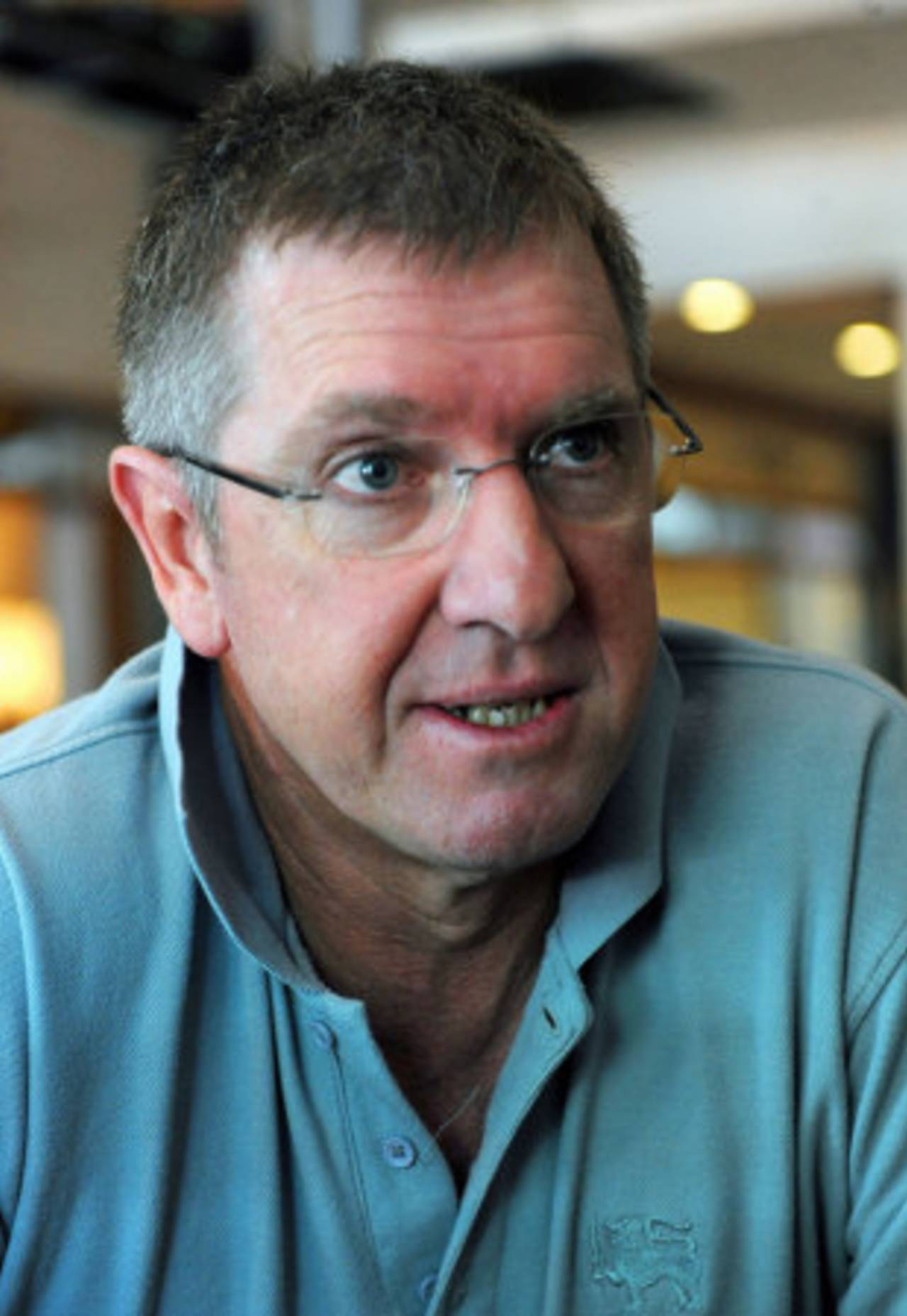In a week where Australia have managed somehow to play a Test against Pakistan in the UAE and a Twenty20 against South Africa at home two days later, they have been coached by
Trevor Bayliss, a man who in the space of the same year might also have mentored England.
Bayliss spoke at length with the ECB managing director Paul Downton earlier this year, after the resignation of Andy Flower. It was the ECB doing the chasing, as Bayliss was content with his assorted roles as coach of New South Wales, the Sydney Sixers and Kolkata Knight Riders in the IPL.
Likewise Downton and England seemed eager to appoint a countryman, although they also approached Tom Moody. "They let me know half their thinking was they wanted a local Englishman," Bayliss told ESPNcricinfo. "I was up front with them as well, I wasn't chasing it, they were the ones ringing me - I was quite happy doing what I'm doing. I was happy, if they wanted to take it further it was up to them. But I had no hard feelings over not getting it."
One of the obvious talking points between Bayliss and Downton was Kevin Pietersen who, by the time the pair spoke, had already been summarily dismissed by the ECB. Downton was clear that the new coach, whoever it was, would not have the option of selecting Pietersen. Bayliss did not press the issue, but wonders how he might have dealt with it.
"All that was said was that he wouldn't be playing, and that's what it was left at," he says. "I didn't press it any further. At that stage of the negotiations it wasn't really an issue. To have such a player in the team would be an advantage, but you've got to go back and see how they actually got there and could that have been handled better?
"I don't know as I wasn't closely involved. It's disappointing that such a good player is no longer playing. Coaches have to coach everyone in the team. It's not just about four or five guys, there's 11 individuals in the team and you've got to try to find a way with all of them. But what went on behind the scenes with England I don't know..."
What Bayliss does know is how to create a stable, honest and not-too-pressurised environment in which players can flourish. He has done so for the Blues, the Sixers, the Knight Riders and also Sri Lanka, who he coached to the 2011 World Cup final before returning home to Penrith, west of Sydney. Experience has taught him that players perform best when not fearing retribution for failure.
"As a coach, you learn from the players you played with, from the coaches you've been under, the good things and the bad things - what not to do as well as what to do - that makes up your style of coaching," he says. "An element of it is my personality as well, fairly easy-going.
"Players at this level are good players, that's why they get selected, so it's about creating a good, honest, hard-working environment, and that allows the players to function without being under extra pressure to perform or not to make mistakes. That type of environment allows the players to use the skills they've got."
In NSW, Bayliss is admired for maintaining a level demeanour. It is commonly said that his facial expression while watching a game will never provide an indication of the score. As Bayliss admits, this can be an effort in itself, but a worthwhile one. "I can tell you on the inside it's chewing you up sometimes," he says, "but you've got to keep level.
"To me yelling at players or being angry at players is just making things worse. If you're in the dressing room throwing things and going off your head, that just makes the environment even more edgy. Players are under enough pressure as it is and they don't need the coach shoving it down their throats or getting angry, that doesn't help anyone."
Australia have had more reasons to throw a dressing room tantrum in Twenty20 than just about any other format, having never won a World T20. Not even the magic dust seemingly sprinkled by Darren Lehmann during Test victories over England and South Africa was able to translate into the shortest form, a dire display in Bangladesh conveying tactical deficiencies as well as fatigue after a long summer.
One of the gambits taken in 2010 was the short-term recruitment of an outside consultant, Michael Sholly, to help research and plot Australia's World T20 plan for a tournament staged in the Caribbean. If Australia did not win, they at least made their only final in the format, and now Bayliss hopes his fresh pair of eyes will prove useful beyond this week's short assignment.
"My whole mode of operating is trying to get the guys to play good cricket by taking pressure off them - they're under enough pressure as it is to perform and do well - and about combinations," he says. "Whether we've had the right combinations over the last few years in T20 stuff is debatable.
"But it's an opportunity to work with these guys and see if we can head things in the right direction. There's plenty of time to get things right before the next World T20 [in India in 2016]."
Bayliss' Australian role is strictly a short-term commission, but in being available to mentor the T20 side as Lehmann returned home from the UAE, England's loss may already have been Australia's gain.
Daniel Brettig is an assistant editor at ESPNcricinfo. @danbrettig
